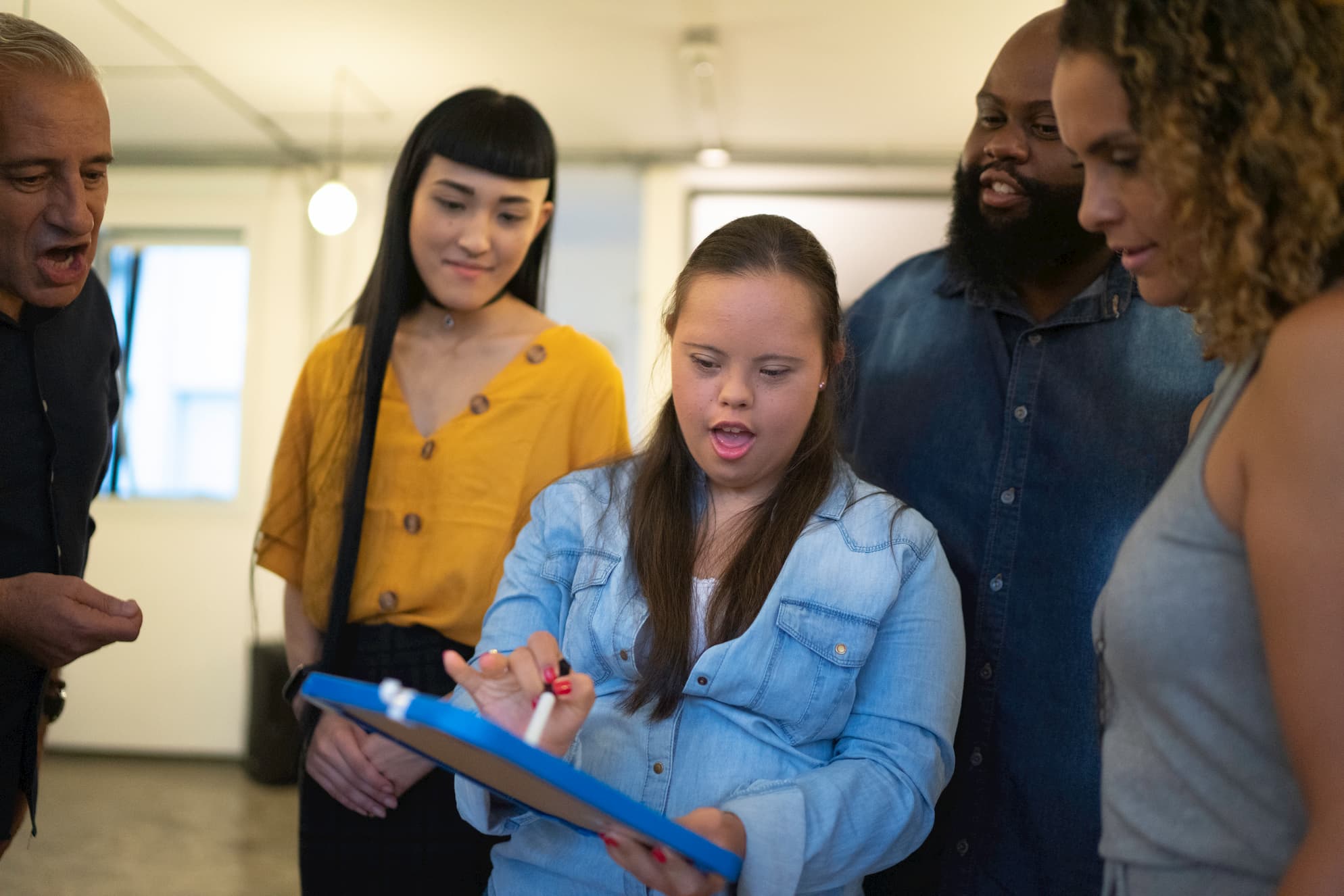Having a job is important for everyone’s quality of life, including people with intellectual disability.
When we have a job we:
- get to talk and work with workmates and colleagues
- have opportunities to learn and use our skills
- we earn a living.
There is also status attached to being employed.
A recent Australian study asked people with intellectual disability in open employment and segregated employment (like Australian Disability Enterprises (ADEs)) what they liked and disliked about having a job. The results showed that relationships and being paid were both in the top three best things about having a job.
The most important part of being paid that people talked about was what they spent their pay on and the difference it made to their lives. They said they spent their income on daily living expenses such as food, rent or board, health insurance and transport. It meant they could shop for things they like, buy birthday presents and pay their own way when out with family and friends. It was the difference between being reliant on others or having more independence. It also allows people to save up for big items including holidays, providing something to aim for and look forward to.
You can read this research here.
As well as financial independence, work also gives us a purpose, lets us meet new people, make new friends, and earn money to do the things we enjoy. It also gives us the opportunity to challenge ourselves to try something new.
Unfortunately, many people with intellectual disability don’t get to experience the benefits of working. Many employers and families have low expectations about people with intellectual disability being able to work. However, research shows that, with the right support, people with intellectual disability can work and receive many benefits from it.
Work and the DSP
Most people with intellectual disability also get the Disability Support Pension (DSP). Many don’t have to look for work to get this payment. It may seem easier to just to get the DSP and not worry about having a job.
However, while the DSP is an important source of income, it only really covers daily living expenses. It also restricts people’s lives. It restricts:
- where you can afford to live
- whether you need to live in shared housing
- whether you can afford to buy the things you need and want.
Most people with intellectual disability who are working are still eligible for the DSP. Wages can affect how much DSP you get, but you’re still better off if you work, even if you report your income.
You can also still get the Health Care Card and other benefits like rent allowance and transport support. On top of this you also get all the benefits of earning a wage.
You can read more about how work can affect someone’s DSP.
Open employment is when people with and without disability work together in regular jobs.Read more An Australian Disability Enterprises (ADE) is a type of employment support for people with disability who need significant support to work.
Read more



